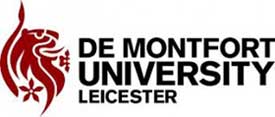About Business Intelligence Systems And Data Mining Msc/pg Dip/pg Cert in De Montfort University
This course explores the application and development of techniques used by enterprises for the analysis of business information. Throughout the course we will expand your knowledge of contemporary software tools and help you to gain invaluable insights into real-world solutions through our research groups, guest lectures and seminars.
On our Business Intelligence Systems and Data Mining MSc, your learning will be supported by experienced SAS-accredited staff, who will equip you with a comprehensive understanding of SAS business intelligence software.
You will learn about the Business Intelligence system concept, its application in organisations, and its relationships with other computer-based information systems – such as decision and management support, data warehouses and artificial intelligence.
We will teach you to review data mining methods and techniques available for effectively uncovering important information from large data sets. In doing so, you will develop an in-depth knowledge of data mining methods and gain practical experience of using the data mining software, SAS Enterprise Miner.
You will graduate with an accredited, industry-recognised certification from SAS and be well placed to take up management and business information systems development roles in the industry.
Key features
- You will be taught by staff with extensive experience of SAS who will provide you with expert knowledge and skills.
- Enhance your employability and gain substantial knowledge and skills in SAS business intelligence software, and work toward your SAS data miner accreditation.
- Benefit from years of research and teaching in computing technology to advance your skills in developing business intelligence systems and data mining solutions to business problems.
- Access specialist computing laboratories including a suite reserved specifically for postgraduate students.
- Attend guest lectures and seminars with guest speakers from SAS, to gain valuable insight into real world situations. You will also have the opportunity to gain exclusive free access to SAS UK forums.
- Enjoy excellent graduate prospects. Graduates have gone into roles such as BI/SQL developers, logistics data modellers, and insight analysts, at organisations including Cognisco, LLamasoft and Occam DM.zzz
Entry criteria
You should have the equivalent of a British Honours degree (2:2 minimum) in a relevant subject.
We are happy to consider equivalent qualifications from anywhere in the world.
If English is not your first language an IELTS score of 6.0 or equivalent when you start the course is essential. English Language tuition, delivered by our British Council accredited Centre for English Language Learning, is available both before and throughout the course if you need it.
De Montfort University Highlights
| Type of Institution |
Public |
| Campus Setting |
Urban |
| Endowment |
£1.17 million |
| Number of Campuses |
4 faculties |
| Number/Percentage of International Students |
23205 |
| Total number of Professors |
3240 |
| Student Satisfaction Rate |
86% |
| Graduate Job Rate |
97.3% |
| Number of Residence Vacancy |
Around 3000 |
| International fee |
Undergraduates- £13240 (annual) Postgraduates- £15950 (annual) |
| Number of Academic Programs |
UG, PG, Part time, distance, blended |
| Mode of Program |
Full time, distance and online |
| Average Graduate Salary |
19800 pounds a year |
De Montfort University The tuition fee (In GBP) for various programs is tabulated below:De Montfort University Average Cost
| Field of Study |
Avg.Fees |
| Art, Design and Humanities: |
£13,750 |
| Business and Law |
£13,750-£14,550 |
| Media |
£13,750 - £14,250 |
| Engineering |
£14,250 |
| Computing |
£14,250 |
| Health and Life Sciences |
£13,250 - £14,250 |
| Nursing BSc |
£14,950 |
De Montfort University The Average Tuition Fees and Other Expenses
| Expenses |
Estimated cost in pounds |
| Undergraduate tuition fee |
13,250- 14950 |
| Postgraduate tuition fee |
13600-15,900 |
| On campus accommodation |
5,000-6040 |
| Average cost of living |
97-110 per week |
DMU International Scholarship up to 1500 pounds
- TEF Gold Outstanding Alumni Scholarship up to 3000 pounds
- Leicester Castle Business School Scholarships:
- Global MBA Scholarship £3,000 - £5,000
- Full Postgraduate Scholarship
- LGBTQ + Allies Scholarship-two fully funded post graduate taught scholarship packages including full fee weaver and maintenance bursary.
- Vice Chancellor's Sports Scholarship- three different scholarship packages are available with eligible students being awarded up to 6000 pounds of support.
